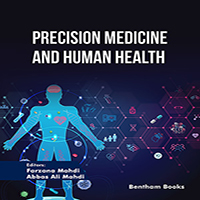Abstract
Background: It is known that attitudes towards the elderly are an important variable affecting healthcare services. Considering the increasing trends of the population over 65 years in countries, it is important to determine the attitudes of future healthcare workers towards the elderly and to prepare them to serve in the health sector with activities that will lead to positive changes. In this direction, it is important to determine the effect of personality traits of prospective healthcare workers on their attitudes toward the elderly.
Methods: The research was conducted using the “relational survey model”. The study was conducted with 581 prospective healthcare workers. Personal Information Form, Eysenck Personality Questionnaire, and Kogan's Scale of Attitudes towards the Elderly were used as data collection tools. Data were obtained and analyzed using the online data collection method.
Results: According to the results of the study, it was found that the attitudes of students who were healthcare candidates for older adults were generally positive (Χ = 63.46±13.42). While there was a positive yet moderate and statistically significant correlation between attitudes towards the elderly and scores on the Extraversion subscale (r= 0.634, p<0.01) and a negative yet moderate and statistically significant correlation with scores on the Neuroticism (r= -0.568, p<0.01) and Psychoticism (r= -0.602, p<0.01) subscales. The personality traits extraversion, neuroticism, and psychoticism explained 58.6% of the attitude towards the elderly. According to the regression results, extraversion (β= 0.358; p<0.001) positively affected attitudes towards the elderly, whereas neuroticism (β= -0.310; p<0.001) and psychoticism (β= -0.307; p<0.001) negatively affected attitudes towards the elderly.
Conclusions: Given the important role of healthcare professionals in improving the care and quality of life of the elderly, it is necessary to develop strategies to improve the attitudes of future healthcare professionals towards the elderly. Consideration of personality traits in determining these strategies may contribute to the development of effective and personalized approaches.
Keywords: Eldercare, Old people, Personality, Character, Attitudes of health personnel, Healthcare service.






























